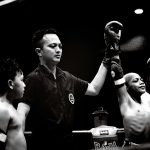When we think of Malaysian sports, we often picture our national heroes — Datuk Lee Chong Wei smashing his way to Olympic glory, Azizulhasni Awang racing at lightning speed, or Nicol David conquering the world of squash. But behind every champion’s moment of victory lies something far more humble: a community that nurtured their first steps.
This is the philosophy at the heart of Vision Sukan Negara 2030 (VSN 2030) — to create not just elite athletes, but a sporting culture that begins at the grassroots level. Because every champion’s story begins somewhere — in a school field, a futsal court, or a small-town sports meet.
1. Why Grassroots Sports Matter
Grassroots sports are the foundation of any successful sporting nation.
They are where children discover their talents, where coaches shape raw potential, and where lifelong habits of discipline and teamwork are born.
In Malaysia, the challenge has never been a lack of talent — it has always been about building the right ecosystem to identify, support, and sustain that talent from the ground up.
Through VSN 2030, the government aims to turn community sports into a national movement, ensuring that every Malaysian — regardless of background or location — has the opportunity to play, train, and dream.
“No champion is born in isolation. They are products of communities that believe in them.”
2. The Role of Schools and Youth Programs
The journey often begins in schools — where curiosity meets opportunity.
Malaysia’s Ministry of Education, working with the Ministry of Youth and Sports (KBS), is strengthening school-based sports programs under initiatives such as 1Murid 1Sukan (One Student, One Sport).
This initiative ensures that every student participates in at least one sporting activity, not only to stay fit but to develop character.
At the youth level, programs like the National Youth Skills Development Program (PLKN 2.0) and KBS’s Youth Empowerment Programs promote teamwork, leadership, and community spirit through sports.
The goal is clear: to make sports an integral part of Malaysian education, not an afterthought.
Schools act as the first scouting grounds. Talented players can then progress through district and state competitions, feeding into specialized sports schools such as Bukit Jalil Sports School (BJSS) and Sekolah Sukan Tunku Mahkota Ismail (SSTMI) — Malaysia’s modern “talent factories.”
3. Community Leagues: The Heartbeat of Grassroots Sports
Beyond schools, community-based sports are the heartbeat of Malaysia’s sporting culture.
Local futsal tournaments, kampung football leagues, morning tai chi groups, and city fun runs — these are the spaces where participation thrives.
Local councils (PBTs) and non-governmental organizations are now encouraged under VSN 2030 to organize inclusive sports events that bring people together.
Examples include:
- Fit Malaysia programs — mass fitness events held nationwide.
- Rakan Muda Sports Clubs — youth-oriented sports and recreation groups.
- Local Esports & Futsal Leagues — attracting young Malaysians with digital and physical competition.
Such initiatives serve more than just recreation — they build community spirit, encourage healthy living, and uncover talent that might otherwise go unnoticed.
In many small towns, stories abound of young players scouted during community events who eventually represent their states — or even Malaysia — on the international stage.
Grassroots sports make dreams visible and reachable.
4. Bridging Urban and Rural Opportunities
Malaysia’s diversity is one of its strengths — but also a logistical challenge.
While urban centers like Kuala Lumpur and Penang enjoy modern facilities, rural areas often face limited access to quality fields, courts, and equipment.
VSN 2030 addresses this through partnerships between KBS, state governments, and private sponsors to upgrade and build multipurpose community facilities in smaller districts.
Portable and low-cost infrastructure — such as modular futsal courts, open-air gyms, and community mini-stadiums — are being introduced to ensure no region is left behind.
Additionally, digital platforms now allow rural talents to showcase their skills through online scouting systems, creating a more inclusive national pipeline.
Because sporting greatness should never depend on postcode.
5. Coaches, Mentors, and Volunteers: The Unsung Heroes
No grassroots ecosystem can thrive without coaches, mentors, and volunteers — the real backbone of community sports.
These individuals often work tirelessly with limited resources, driven by passion rather than pay. They are teachers after school, parents organizing local leagues, or retirees sharing decades of experience.
To support them, VSN 2030 includes efforts to professionalize coaching standards through certification and development programs under the National Coaching Academy and Institut Sukan Negara (ISN).
Coaches are now trained not only in sport-specific skills but also in youth psychology, nutrition, and injury prevention, ensuring athletes receive well-rounded guidance.
Volunteerism is also being celebrated through campaigns like “Sukan Untuk Semua”, encouraging Malaysians to contribute time and energy to community programs.
Because every successful athlete owes their beginnings to someone who cared enough to coach, cheer, or believe.
6. The Power of Inclusivity in Grassroots Sports
Grassroots sports are not just about winning — they’re about belonging.
By design, they bring people from different races, backgrounds, and abilities together through shared passion.
Malaysia’s multicultural landscape is reflected in every local competition — from Tamil school sepak takraw teams to Orang Asli football clubs and para-athlete programs.
VSN 2030 emphasizes inclusivity, ensuring equal opportunities for:
- Women and girls in sports.
- Persons with disabilities (through Para Sports Development Programs).
- Senior citizens through active-aging initiatives.
These inclusive pathways make sports a social equalizer, strengthening unity and empathy — values that echo Malaysia’s larger national identity.
7. Turning Passion into Pathways: From Grassroots to National Level
A strong grassroots system is not just about participation; it’s about creating pathways to higher levels.
Under VSN 2030, the National Talent Identification Program links schools, clubs, and state associations through data-driven scouting.
Promising athletes receive access to training scholarships, ISN support, and state-level sports councils, ensuring they don’t fall through the cracks.
This integrated pathway — from community field to international arena — is what transforms potential into performance.
It’s a system where the next Lee Chong Wei or Nicol David could emerge not just from a major city, but from anywhere in Malaysia.
8. The Ripple Effect: How Grassroots Sports Build a Stronger Malaysia
The benefits of grassroots sports go far beyond medals.
They:
- Promote healthier lifestyles, reducing national healthcare costs.
- Build confidence and leadership among youth.
- Strengthen family and community bonds.
- Create local economic activity through sports events, gear, and tourism.
Most importantly, they foster national pride — the kind that comes from knowing that sports unite us as Malaysians, regardless of background.
When communities thrive, the nation thrives.
Conclusion: Every Champion Begins Somewhere
The path from grassroots to greatness isn’t a straight line — it’s built through years of support, belief, and opportunity.
Vision Sukan Negara 2030 recognizes that Malaysia’s sporting future doesn’t begin in stadiums — it begins in communities, in every child chasing a ball under the evening sun.
By nurturing grassroots sports, Malaysia is not only developing future champions — it’s shaping a stronger, healthier, and more united nation.
Because greatness is not found at the finish line.
It begins where passion first takes root — in the heart of the community.


